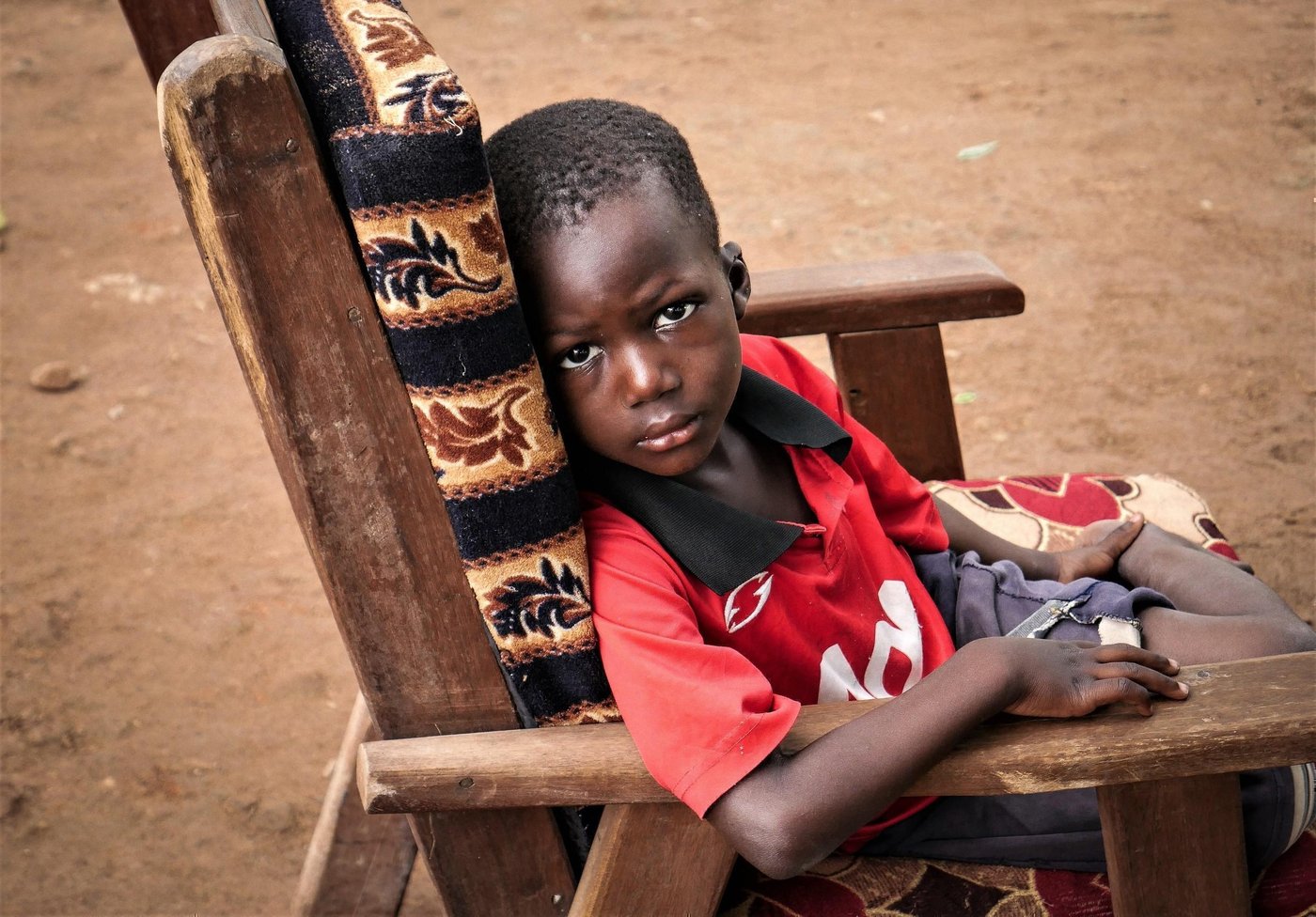Seated on a wooden chair on the porch of a small house in Dekoa, a central town in the Central African Republic (CAR), Cecile tells us her story. "I cannot get rid of that memory. The moment I discovered my son’s body," Cecile says. She is clad in a flower print wax dress, with a blank expression on her face. "The fighters shot him straight in the head. His blood had splattered the soil around him. I tried to clean his face even though I knew he was dead."

Cecile’s son was killed four years ago, in November 2014, when members of armed groups attacked Daya, a town north of Dekoa. Like millions of other Central Africans, Cecile and her family have been directly affected by years of conflict and violence inflicted by non-state armed groups identified as Seleka militias and Anti-Balaka fighters.
I asked for help to transport his body to the church, but people were too busy saving their own lives.Cecile
The Central African Republic has been in turmoil since a violent takeover of power in 2013. Violence spread as armed militias fought each other and took revenge on the civilian population. In the aftermath of the presidential election in 2016, a relative calm had returned in the country and hope for peace emerged. In late 2016, however, fighting resumed between armed groups, including ex-Seleka factions and anti-Balaka militias, both controlling vast areas of the country.
This new spike in violence has led to the highest level of forced displacement ever recorded in the Central African Republic, with a 70 percent increase of internally displaced people in 2017. It is currently estimated that more than 1.2 million people have been forcibly displaced.
When armed men attacked Daya in the early morning hours, Cecile recalls, they shot indiscriminately at the population. She sought refuge in the church. Her son was shot while they ran.
This war is not about religion, it is about power, territory and politics.Hortence
"I sat by my son’s body from 10 am until 4 pm in the afternoon. I asked for help to transport his body to the church, but people were too busy saving their own lives," Cecile recalls as her youngest daughter, seated quietly on the threshold of the house, is listening to her mother sharing a story she is too young to remember.
"The pain will never go away."

Cecile had eight children before the conflict erupted in 2013. She lost two of them in the war: her eldest son and her second eldest son, whose body was never recovered after armed men attacked his school in Damara. "This was my other son. I have never seen his body, but I haven’t heard from him, so he can only be dead," says Cecile, numbed by the pain. Her third son died of a disease nine months after his birth.
By the time Cecile had lost all her sons, her husband’s health had also deteriorated, and he fell into paralysis. A few months later, it was his turn to pass away. Cecile became a widow and a grieving mother, left alone to care for her five other children.
They entered our village and started shooting our men.Hortence
Attacks on civilians by armed groups wrought havoc in the country, and neither the government nor the large UN peacekeeping force – MINUSCA – have the means to force armed groups to negotiate and disarm. As a result, the lives of countless families have been shattered, and more than sixty percent of the country’s population – 2.9 million – are dependent on protection and humanitarian aid to survive.
"They entered our village and started shooting our men," says 48-year-old Hortence, from the Le Quartier des Combattants in the capital of Bangui. "They were looking to kill Muslims. I shouted "Jesus, Jesus, Jesus," and so they let me go. They kept my husband and killed him," she recalls.
Hortence fled with her four children. She never saw her husband again. Later, she received a video showing his dead body. Hortence had been happily married to her husband for 28 years before the war took away her first love.
Hortence denounces the current instrumentalisation of religion by armed groups. "I was Christian, and my husband was Muslim, and we loved each other. This war is not about religion, it is about power, territory and politics," she says.

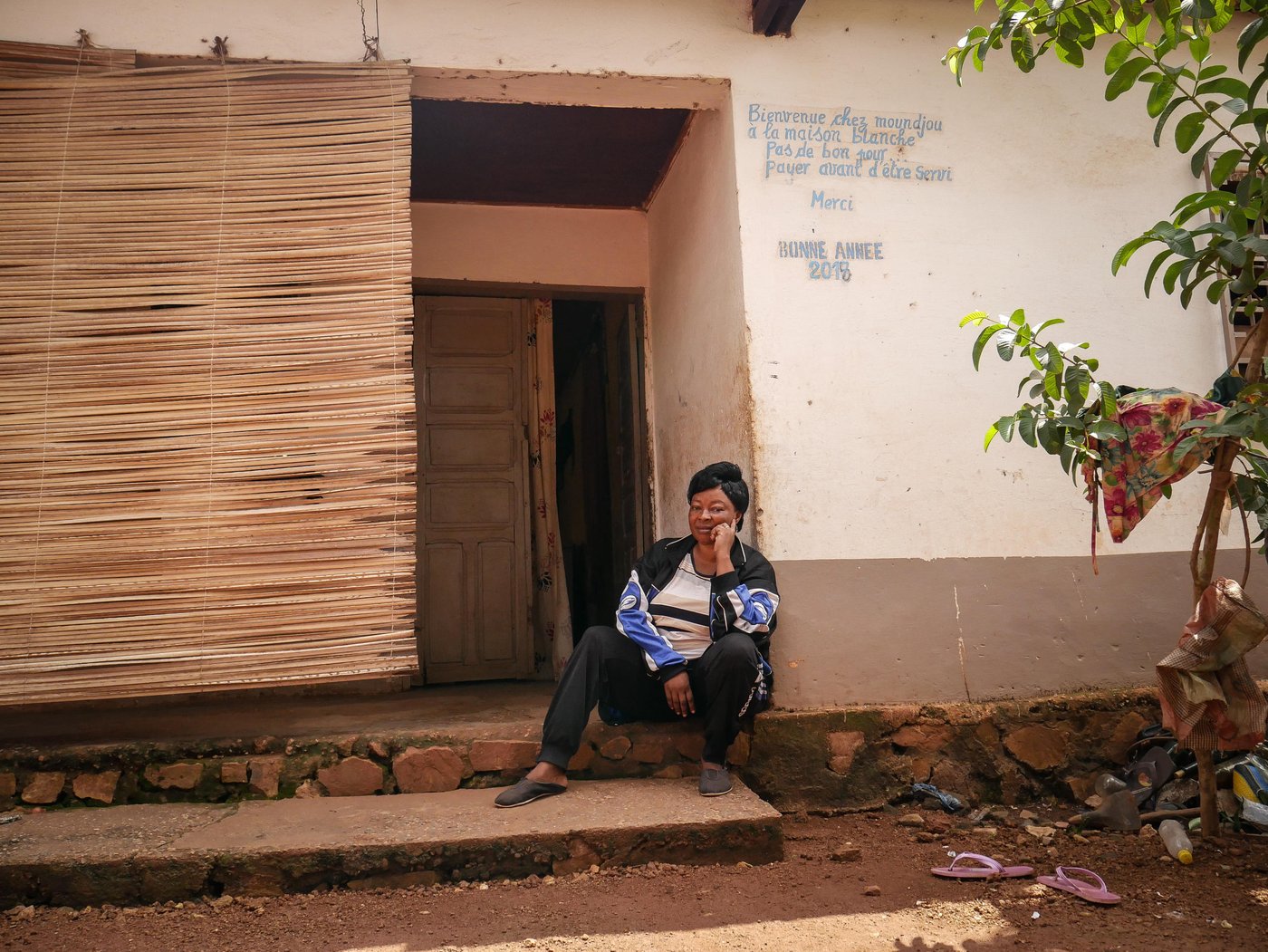
Olga, 42, a mother of two, is also a widow. Her husband was shot dead in front of their house in December 2013, after armed men stormed their village. "They searched the houses one by one. First, they used their guns. Then they used their machetes to kill those who were not yet dead," she recalls.
Olga fled with her children,but returned home as soon as the attackers had left. Her husband had survived two bullets to his back. With a horse-drawn cart, she transported him to the nearest hospital, but it was too late.
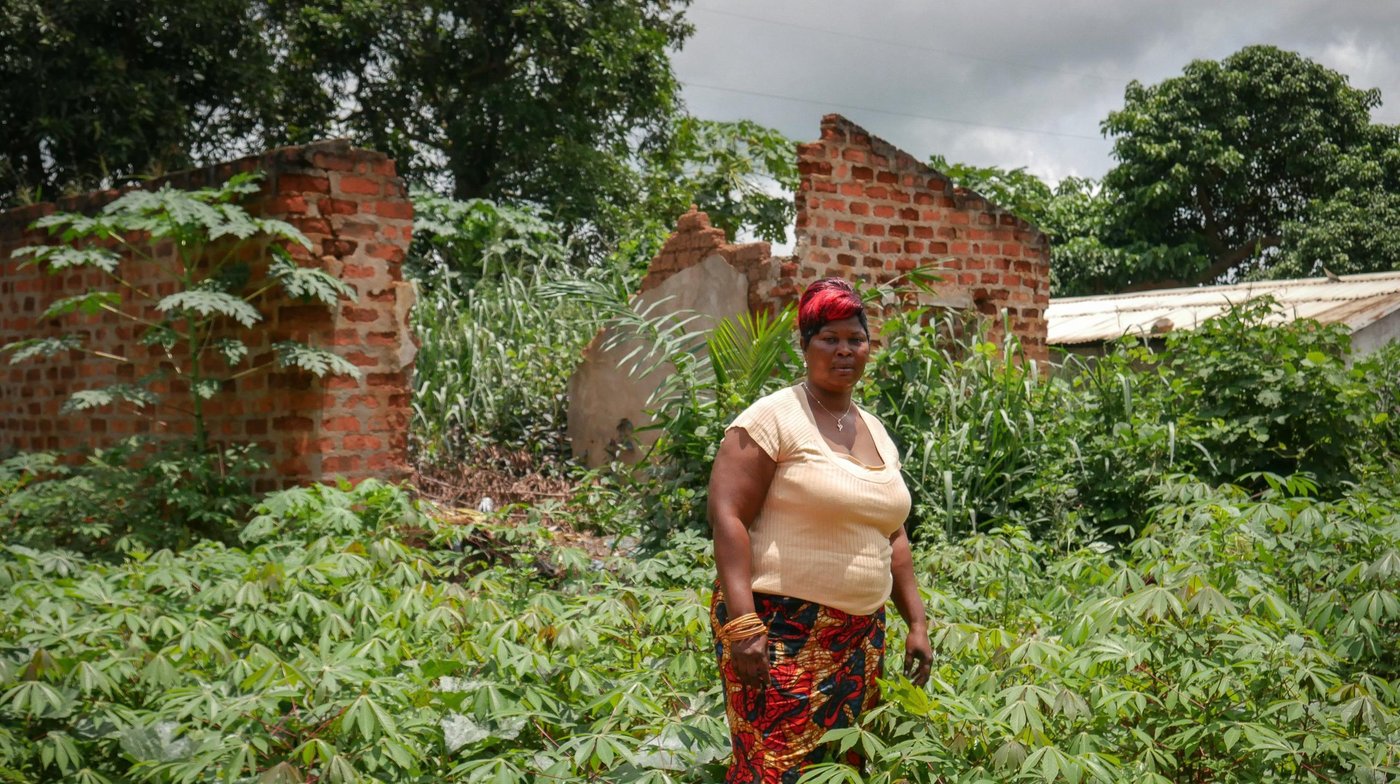
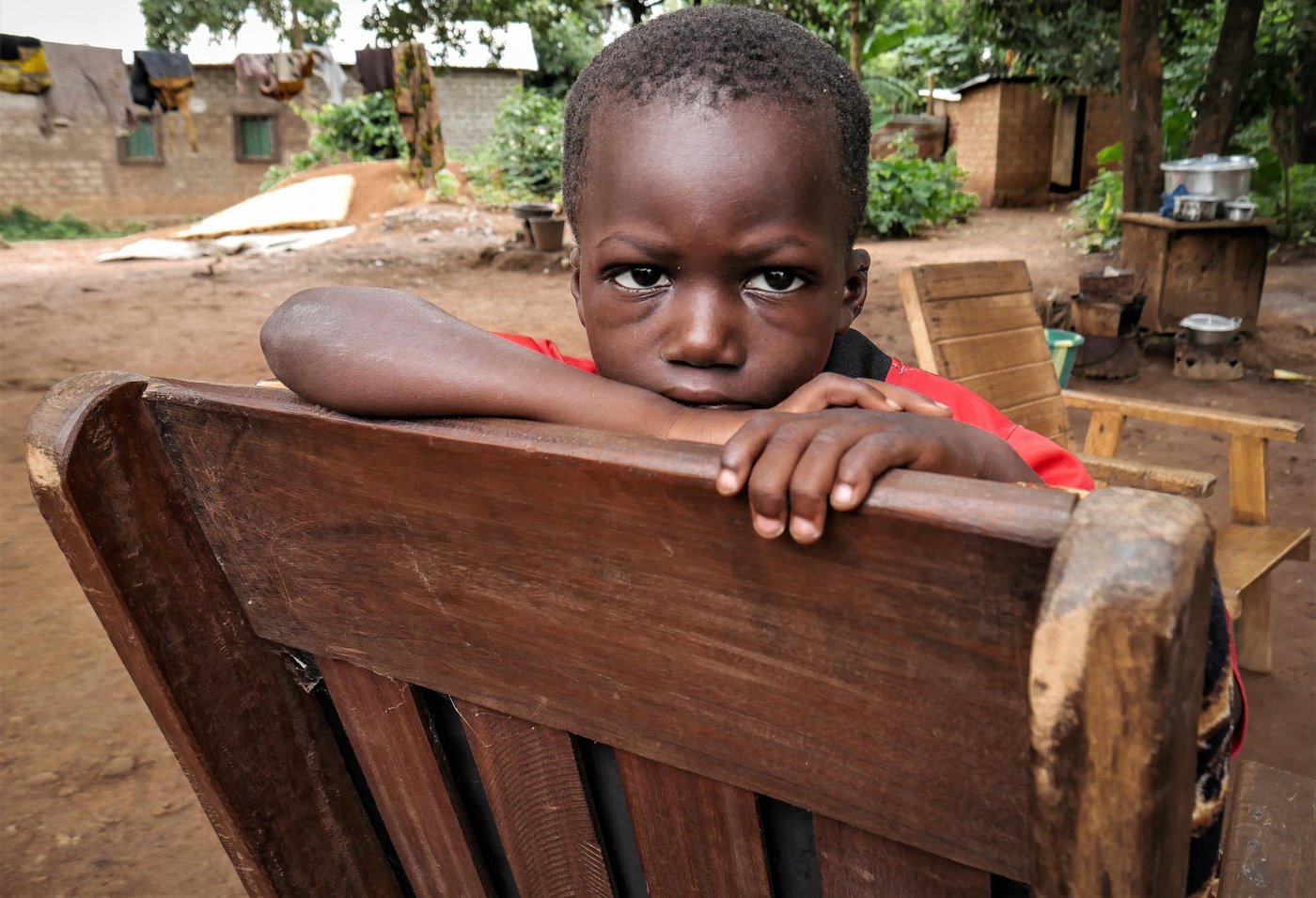
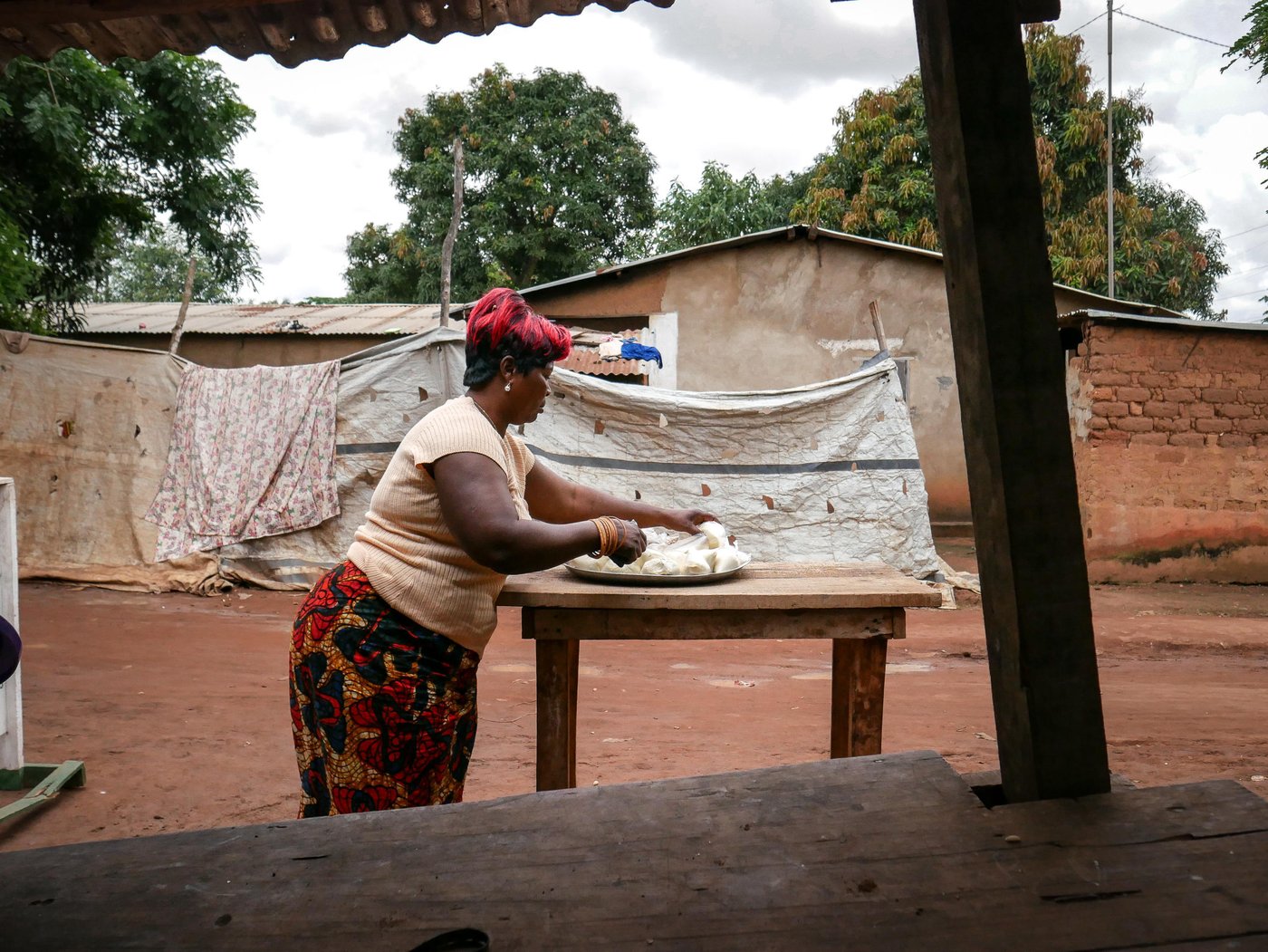
"He loved me very, very much. He was a good listener, and always tried to understand me," Olga recalls, struggling to hold back her tears. "I will never find someone like him," she adds.
To this day, there is no exact death toll of the civilians slaughtered in the grinding conflict in the Central African Republic. The United Nations is not recording civilian deaths on its own as done for other conflicts like in Iraq and Afghanistan. However, the Central African Republic, a country of 4.6 million people and of the size of the state of Texas, is full of grieving fathers, widowed mothers and orphaned children, all struggling to find peace after the murder of their loved ones.


